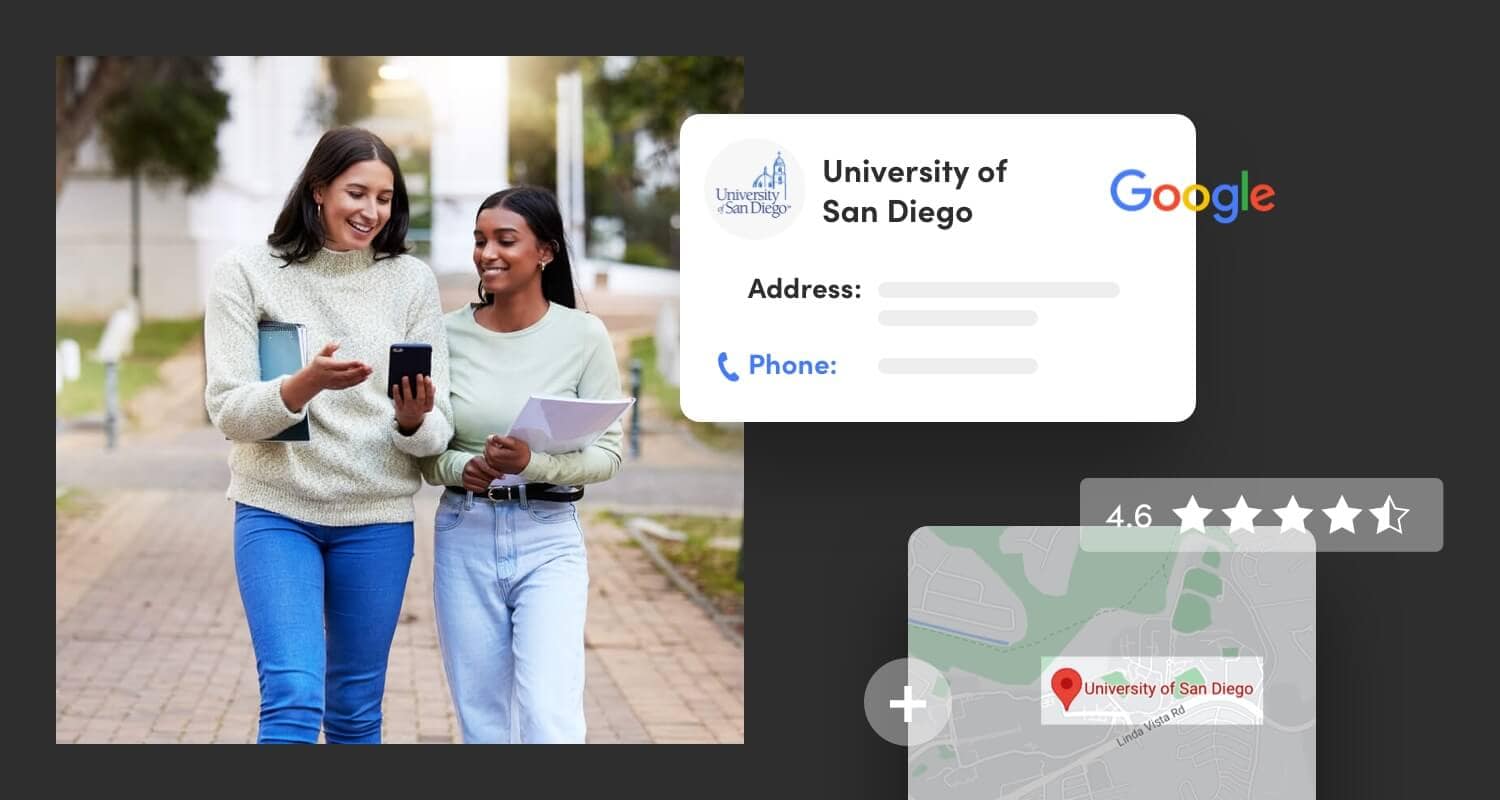Hello!
 Starting a blog in college is an exciting venture — whether you’re sharing your passions, showcasing expertise, or boosting your resume. But to ensure your posts reach an audience beyond your dorm room, mastering Search Engine Optimization (SEO) is essential. SEO may sound intimidating, but it’s a straightforward way to make your blog discoverable on Google and other search engines. By optimizing your content, you can attract readers, drive traffic, and build a following.
Starting a blog in college is an exciting venture — whether you’re sharing your passions, showcasing expertise, or boosting your resume. But to ensure your posts reach an audience beyond your dorm room, mastering Search Engine Optimization (SEO) is essential. SEO may sound intimidating, but it’s a straightforward way to make your blog discoverable on Google and other search engines. By optimizing your content, you can attract readers, drive traffic, and build a following.
Here are 10 practical SEO tips tailored for college students to elevate your blog in 2025.
1. Understand Your Audience
 Before writing, define your target audience—fellow students, hobbyists, or industry professionals? Knowing who you’re addressing shapes your content, tone, and keyword choices. For example, a blog for college students might focus on “budget travel tips for students,” while one for tech enthusiasts could target “latest AI tools 2025.” Understanding their needs and search habits ensures your posts resonate and rank well.
Before writing, define your target audience—fellow students, hobbyists, or industry professionals? Knowing who you’re addressing shapes your content, tone, and keyword choices. For example, a blog for college students might focus on “budget travel tips for students,” while one for tech enthusiasts could target “latest AI tools 2025.” Understanding their needs and search habits ensures your posts resonate and rank well.
2. Master Keyword Research
Keywords are the phrases users type into search engines. Use tools like Google Keyword Planner, Moz Keyword Explorer, or Ubersuggest to find relevant, high-traffic keywords with low competition. For instance, “how to study smarter” might be better than the broad “study tips.” Integrate keywords naturally into your posts, avoiding overuse that disrupts readability. Aim for a 1-2% keyword density to maintain flow.
3. Craft Snappy Headlines
Your headline is your first impression in search results and social shares. Make it compelling, clickable, and keyword-rich while staying under 70 characters to fit SERPs. For example, “Ace Your Finals: 5 Proven Study Hacks for Students” outperforms “Exam Tips.” If crafting headlines feels tricky, consider consulting a writing service for tailored suggestions to boost clickability.
4. Optimize Meta Descriptions
Meta descriptions—the brief snippets below your title in search results—drive clicks.
 Keep them:
Keep them:
- Keyword-Focused: Include your primary keyword for relevance.
- Concise: 155-160 characters to avoid truncation.
- Engaging: Use phrases like “Discover” or “Learn” to entice readers, e.g., “Learn 5 budget travel tips for students to explore more in 2025.”
A strong meta description improves click-through rates, signaling relevance to search engines.
Also read: How To Prevent Yourself From Disease – Tips For Students
5. Use Headings Strategically
Break your content into scannable sections with headings (H1 for the main title, H2/H3 for subheadings). This enhances readability and helps search engines understand your post’s structure. Include keywords in headings where relevant, but ensure they align with the section’s content. For example, an H2 like “Time Management Tips for College Students” boosts both SEO and clarity.
6. Optimize Images
Images make your blog visually appealing, but they must be SEO-friendly.
Use:
- Descriptive File Names: Name files like “student-study-hacks-2025.jpg” instead of “img123.jpg.”
- Keyword-Rich Alt Text: Add descriptions like “college student studying with laptop” to improve accessibility and SEO.
Optimized images enhance user experience and help your blog rank in image searches, driving additional traffic.
7. Link Wisely
Strategic linking boosts credibility and engagement:
- Internal Links: Connect to other posts on your blog (e.g., link a study tips post to a time management guide) to keep readers engaged and improve site navigation.
- External Links: Reference reputable sites like academic journals or trusted blogs to add value and signal authority to search engines.
Ensure all links are relevant to avoid confusing readers or diluting SEO value.
8. Make It Mobile-Friendly
With over 60% of searches happening on mobile devices in 2025, a responsive blog is non-negotiable. Use platforms like WordPress with mobile-friendly themes or test your site with Google’s Mobile-Friendly Test. A seamless mobile experience reduces bounce rates and boosts rankings, as Google prioritizes mobile usability.
9. Speed Up Your Site
 A slow blog frustrates readers and hurts SEO—53% of users abandon sites taking over three seconds to load.
A slow blog frustrates readers and hurts SEO—53% of users abandon sites taking over three seconds to load.
Optimize speed by:
- Compressing images with tools like TinyPNG.
- Enabling browser caching to reduce load times for returning visitors.
- Using a fast hosting provider and minimizing heavy code.
Check your site’s performance with Google PageSpeed Insights and aim for a load time under two seconds.
10. Update Regularly
Google favors fresh, active blogs. Post consistently—once a week is ideal for students—to signal relevance. Update older posts with new data or trends, like refreshing a “2024 Study Tips” post for 2025. Regular updates keep your content current, encourage repeat visits, and improve rankings over time.
SEO Success Without the Stress
 SEO isn’t about gaming search engines — it’s about creating valuable, accessible content for real people.
SEO isn’t about gaming search engines — it’s about creating valuable, accessible content for real people.
These tips enhance your blog’s visibility while making it engaging and user-friendly. As a college student, you’re balancing classes and blogging, so focus on authenticity and consistency.
Experiment with keywords, track performance with Google Analytics, and refine your approach.
If coursework overwhelms you, delegate tasks to trusted academic services to free up time for your blog.
Also read:
- USA Faces Attack of Frankenstein Rabbits and Zombie Squirrels: Mutant Animal Outbreak Shocks the Nation
- Steven Knight Unveils First Glimpses of New Series "House of Guinness"
- Catch the AI That Will Help You Woo Any Girl Over Text – Become the Ultimate Romantic Catch
Conclusion
 Starting a blog in college is a fantastic way to share your voice and build skills, but SEO is the key to ensuring it gets read. By understanding your audience, researching keywords, crafting catchy headlines, and optimizing technical elements, you can climb Google’s rankings in 2025. Stay consistent, keep your content fresh, and prioritize user experience to attract readers and grow your blog’s impact. With these 10 SEO tips, your college blog can shine—start optimizing today and watch your audience grow!
Starting a blog in college is a fantastic way to share your voice and build skills, but SEO is the key to ensuring it gets read. By understanding your audience, researching keywords, crafting catchy headlines, and optimizing technical elements, you can climb Google’s rankings in 2025. Stay consistent, keep your content fresh, and prioritize user experience to attract readers and grow your blog’s impact. With these 10 SEO tips, your college blog can shine—start optimizing today and watch your audience grow!
Thank you!
Join us on social media!
See you!






